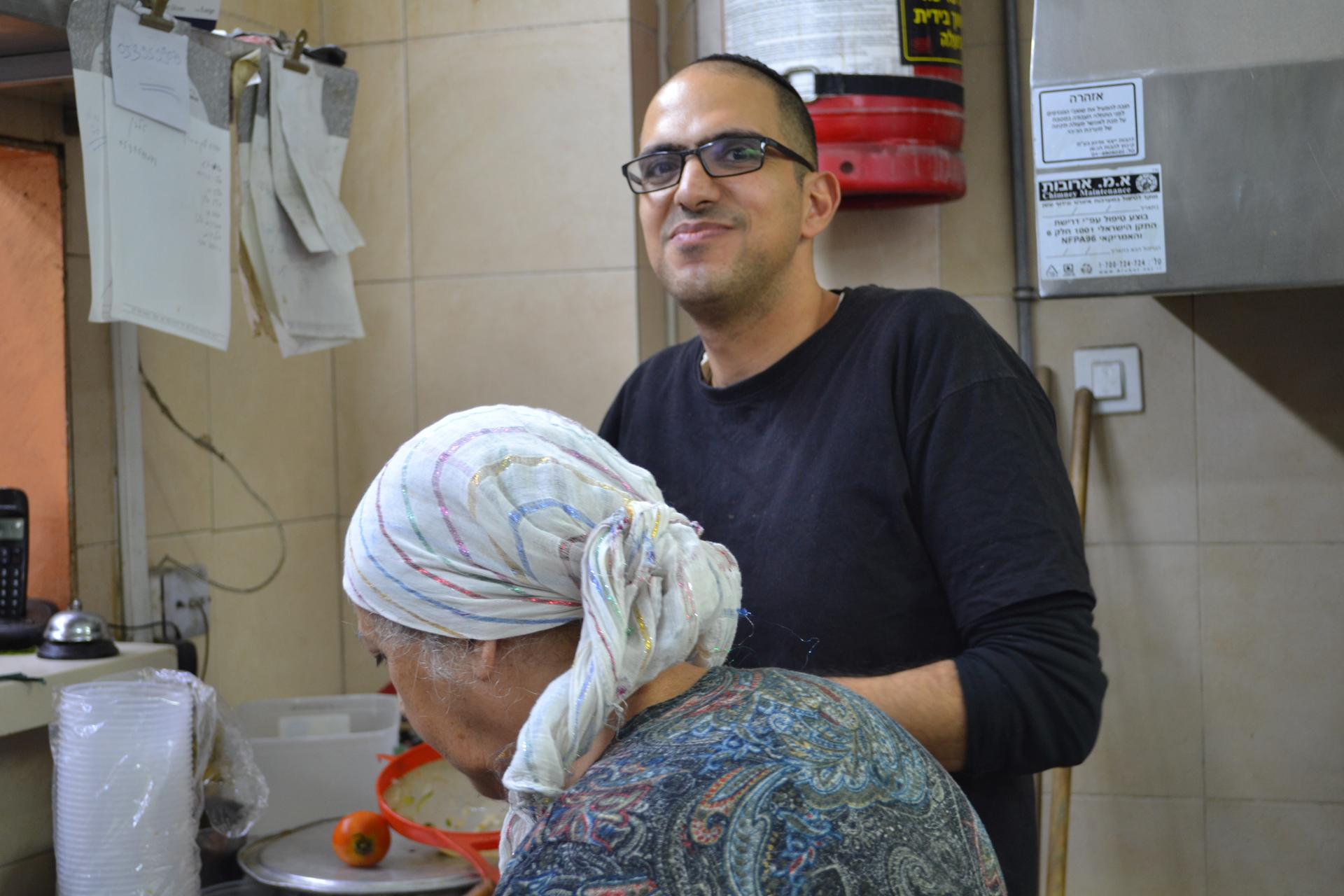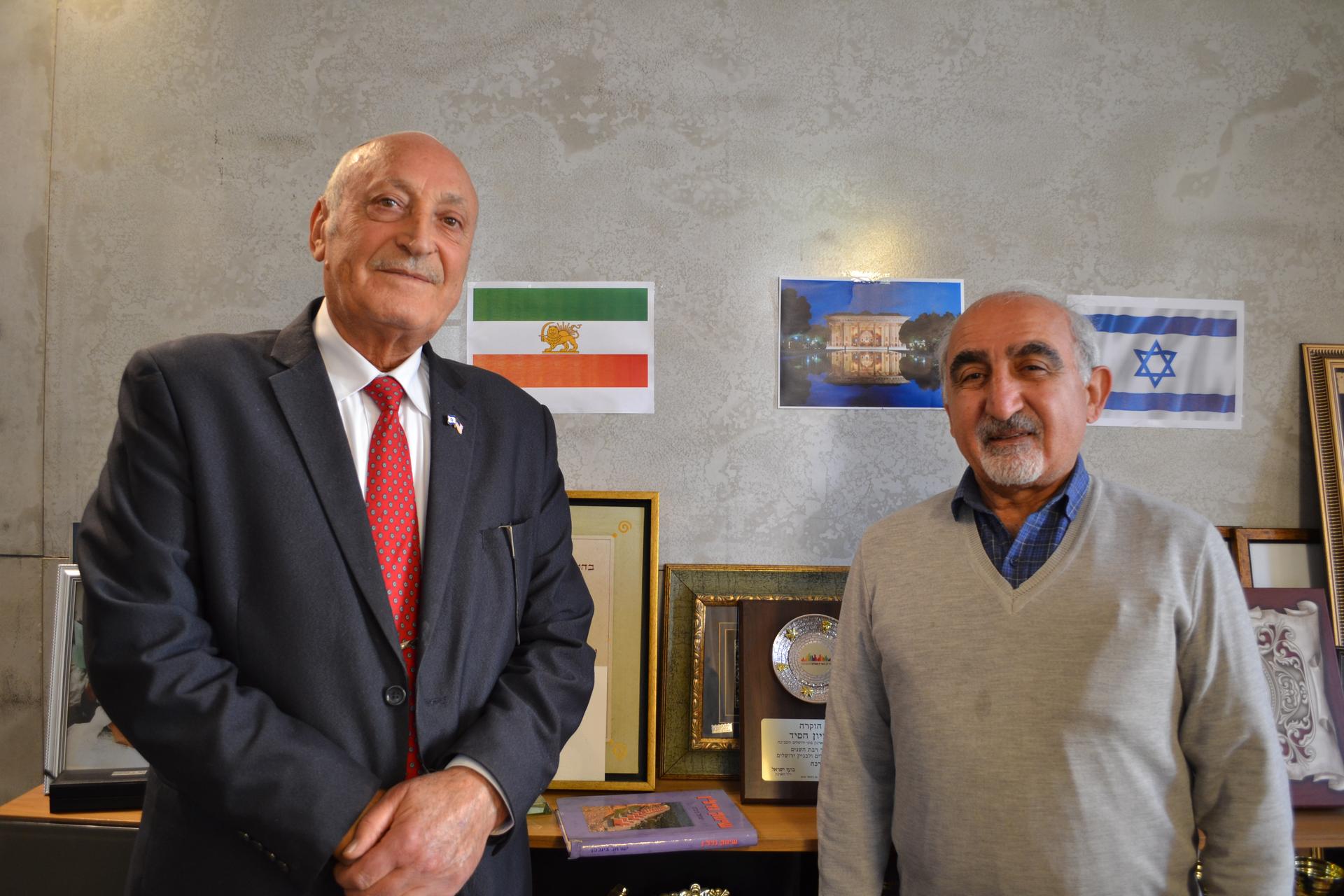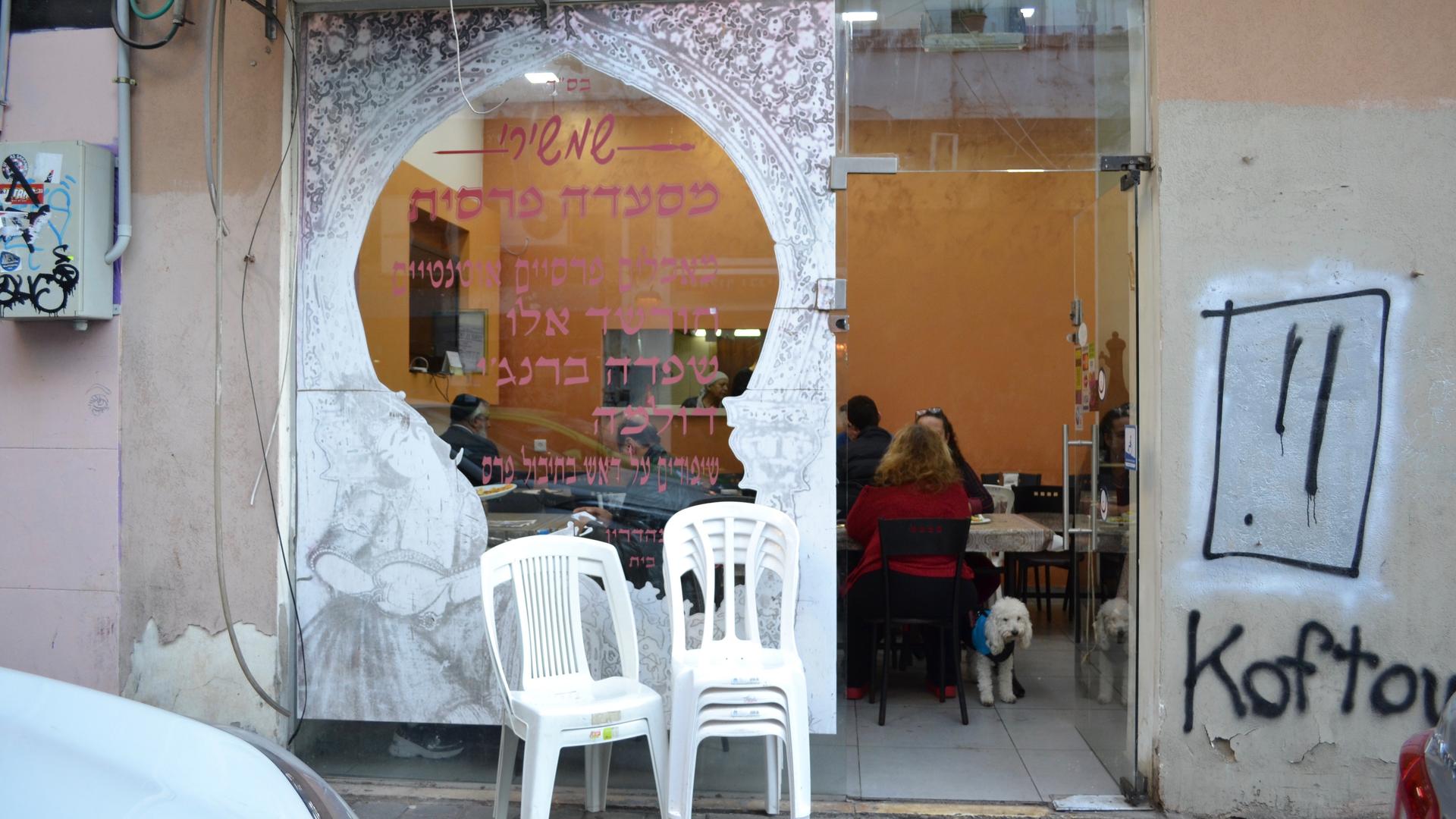After Soleimani’s death, Persian Israelis are caught between two homelands
Shamshiri, a Persian restaurant in South Tel Aviv, Israel.
On a recent Monday afternoon, Tel Aviv’s Shamshiri restaurant was quickly filling up with customers. The owner, Avi Hanasav, rushed between the dining room and the kitchen, where his mother was preparing ghormeh sabzi, chelow kabab, jujeh kabab — classic dishes from Iran.
Hanasav was born and raised in Israel, but he grew up eating Persian cuisine and speaking Farsi. His parents immigrated to Israel during the first big wave of immigration from Iran before the revolution of 1979. He opened Shamshiri with his mother in 2001.
“Even though my parents came here 50 years ago and we were born here, we still know the culture.”
“Even though my parents came here 50 years ago and we were born here, we still know the culture,” Hanasav said during a pause in the afternoon rush.
Related: ‘They need to stop killing our kids’: Ethiopian Israeli lawmakers tackle police brutality
Today, his restaurant is a popular spot with Iranian Jews in Israel who come here for a taste of the old country that’s no longer possible to visit. About 200,000 Israelis have Persian roots. But the two nations are longtime foes: Iran cut ties with Israel after the 1979 Islamic revolution. Tens of thousands of Iranian Jews immigrated to Israel in the second big wave of immigration.

That’s when Orly Noy, a translator of Farsi literature, came to Israel with her parents and brother. Like many Iranian Jews in Israel, she has kept in touch with family in Iran. There are still thousands of Jews living there. It’s one of the only Middle Eastern countries aside from Israel with a large Jewish community.
After the United States killed Iranian commander Qasem Soleimani on Jan. 3, Israeli Prime Minister Benjamin Netanyahu applauded the move. Israel’s security forces went on alert. But Noy worried about her relatives in Iran. They traded messages on WhatsApp.
“I just sent, ‘How are you guys doing?’ And they said, ‘Well, you know we hope for the best and we hope that things don’t deteriorate and that everybody keeps safe,’ but not much more elaborate than that.”
They have to be careful what they say because Iran’s government sees Israel as an enemy.
“You need to be smart when you speak and always take into consideration that somebody might be monitoring their conversation and never do anything that might put them in any sort of danger.”
“You need to be smart when you speak and always take into consideration that somebody might be monitoring their conversation and never do anything that might put them in any sort of danger,” she said.
Related: How comedian Noam Shuster-Eliassi became the woman who proposed to MBS
In spite of the risks, some Jews from Iran still visit Israel by traveling through a third country. But these trips are apparently becoming rarer. Iranian Jews in Israel say they hope for a day when they can go back to visit. Until then, they are intent on keeping the memory of Iran alive. But it’s a memory of a country that in some ways no longer exists.

Zion Hasid is the head of an organization of Iranian immigrants to Israel. On his office wall, there’s a flag with a lion and a sun. It’s the national flag Iran used before the revolution. He immigrated in 1963 — partly out of Zionist beliefs, and partly to escape anti-Semitism — but still feels strongly connected to the country he left behind.
Related: Israeli escalation against Iran is a ‘multilevel’ game
“I’m glad that I was born in such a country. It was free and pleasant to live there, thank God.”
“I’m glad that I was born in such a country,” he said. “It was free and pleasant to live there, thank God.”
Today, Hasid says he feels no clash between his Iranian and Israeli identities. He tells a story — it might be a legend — about the former Israeli Ambassador Meir Ezri who served in Iran before the revolution. Like Hasid, the ambassador was both Iranian and Israeli — and he refused to choose between the two countries.
Related: With the Iran deal falling apart, Israel faces new worries
Tearing up a bit, Hasid repeated what he says were the ambassador’s words: “I have two eyes, a left eye and right eye. I can’t distinguish between the two. I love both of my eyes, Iran and the Land of Israel.”
Our coverage reaches millions each week, but only a small fraction of listeners contribute to sustain our program. We still need 224 more people to donate $100 or $10/monthly to unlock our $67,000 match. Will you help us get there today?
